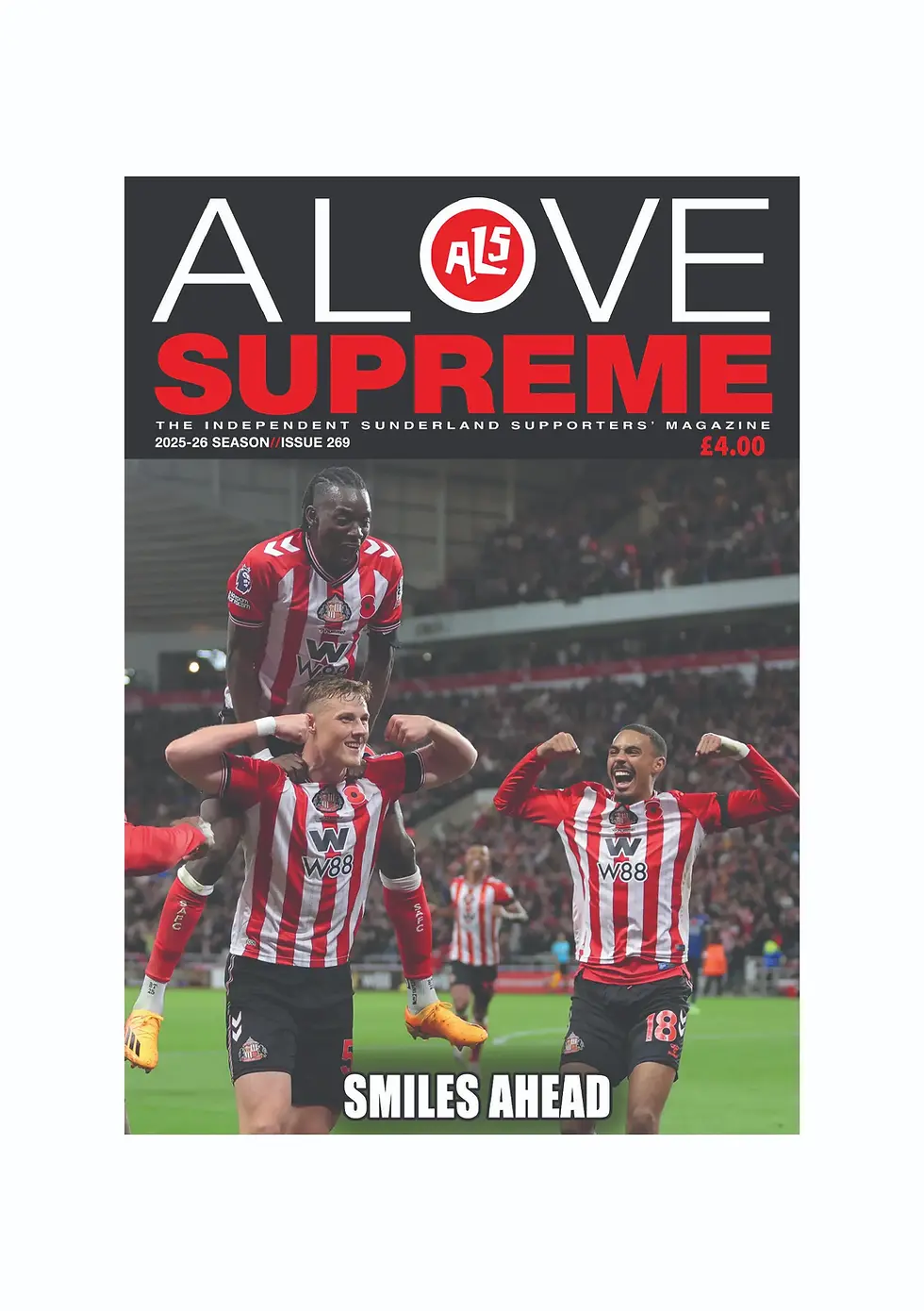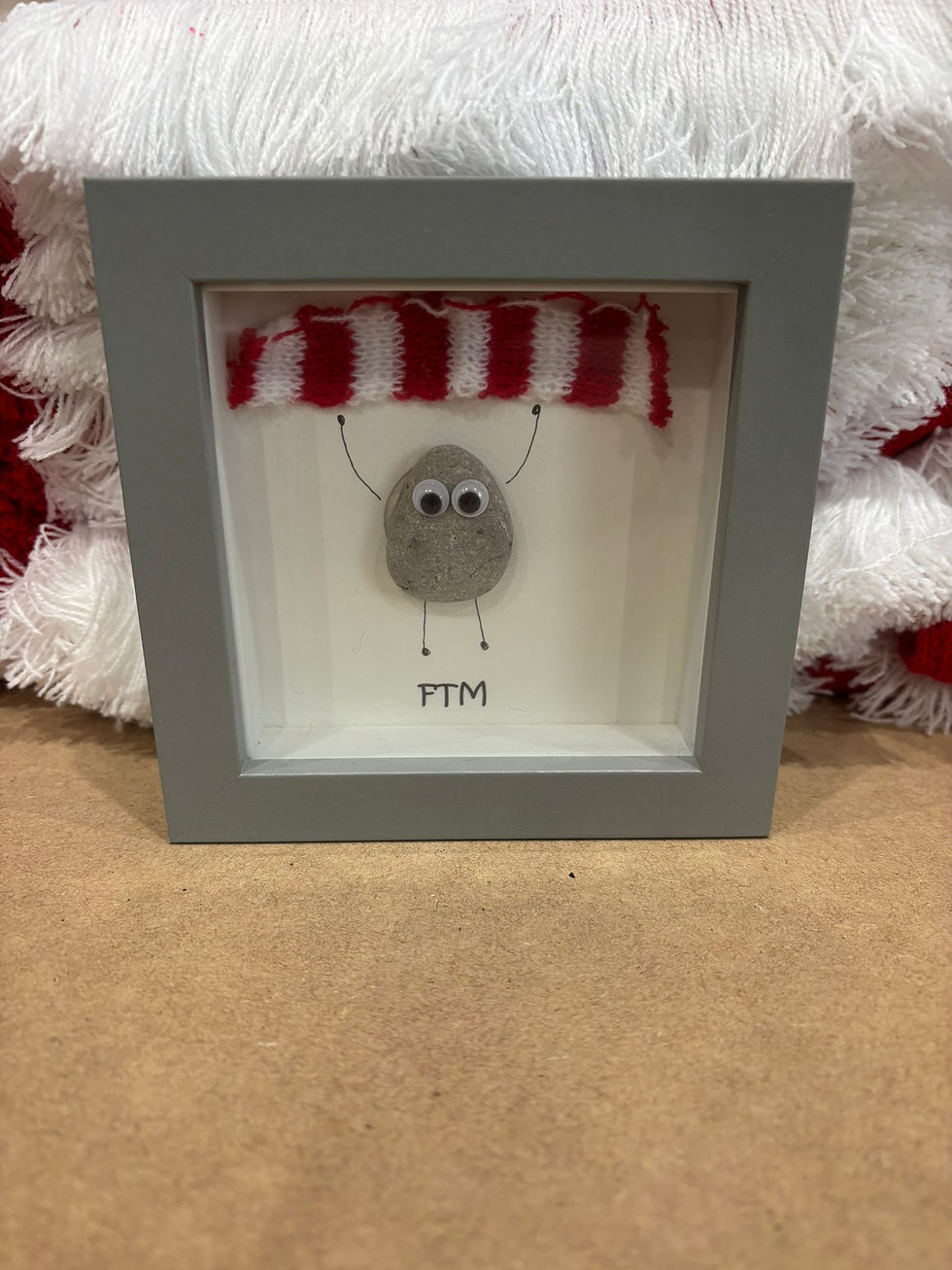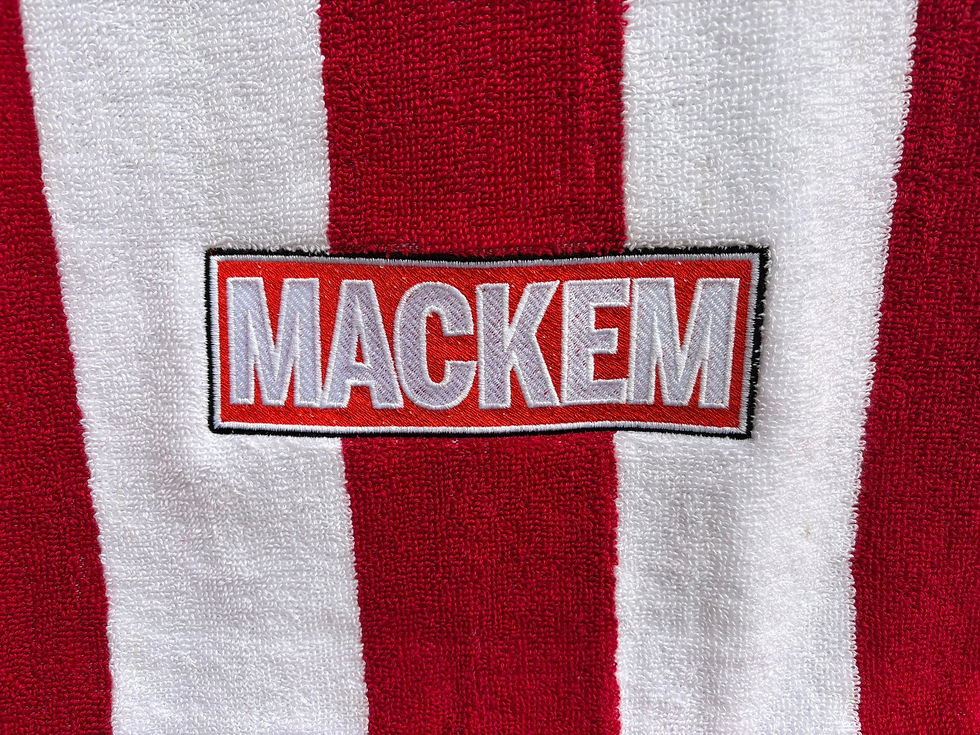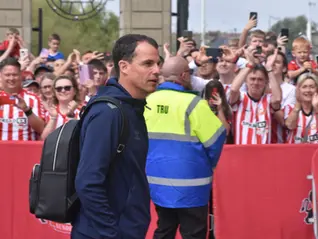RED & WHITE REDEMPTION
- BY ROBBIE THOMSON
- May 27
- 3 min read

From shadows to spotlight — Sunderland’s rise redefined.
Two matches, seven years apart. Both ended 2–1, both won by a local lad in the dying minutes, both met with roars that shook the sky. But only one truly marked a new beginning. Back in August 2018, Sunderland’s long fall seemed to have bottomed out — a last-gasp win on the opening day of League One felt like the first step on a swift return. Instead, it proved a false dawn, the start of years spent wandering through the wreckage of what the club had once been. And yet, on Saturday at Wembley, under the same scoreline and in eerily familiar fashion, came something altogether different. History doesn’t repeat itself, but it often rhymes — and this time, the rhyme rang true. Not just a victory, but a homecoming. Not just promotion, but redemption.
Back in 2018, that opening-day win over Charlton felt like a cleansing breath — a full Stadium of Light, a late goal from Lynden Gooch, and the illusion that the trauma of back-to-back relegations could be swept away in ninety frantic minutes. But beneath the surface, the club was still broken. Ownership had changed hands, but not habits. The squad was a patchwork of short-term fixes, the vision unclear, the foundations brittle. That season would end not in triumph but in heartbreak at Wembley — a cruel irony, given how central this place would become to Sunderland’s eventual resurrection. The years that followed were not glamorous, but they were necessary: a long, sometimes painful process of rediscovering what Sunderland stood for, and what kind of club it wanted to be.
What Sunderland lacked in those early League One years wasn’t just quality on the pitch — it was clarity off it. The club had become adrift, unsure of its place in the modern game. Stewart Donald’s takeover in 2018 brought optimism, but little long-term vision. “It’s a rebuild,” he said, “but we expect to bounce back quickly.” That impatience would come to define the early post-Premier League era: a belief that size alone could lift Sunderland out of the third tier. But football doesn’t reward heritage without humility. Pundits and reporters spoke of a “sleeping giant,” but the truth was harder — Sunderland weren’t sleeping, they were lost. It wasn’t until Kyril Louis-Dreyfus arrived in 2021, speaking not of quick fixes but “sustainable growth,” that something began to shift. The club began to feel less like a burden of its past, and more like a project of the future.
The shift wasn’t immediate, but it was unmistakable. Under the ownership of Kyril Louis-Dreyfus, the strategy of Kristjaan Speakman and most recently the guile, nous and footballing intelligence of Regis Le Bris, Sunderland stopped trying to act like a Premier League club in exile and started behaving like a modern football club in motion. Out went the scattergun recruitment and revolving-door culture; in came a philosophy built around youth, data, and patience. The Academy of Light, once more a proving ground than a PR slogan, began producing players who weren’t just good enough — they belonged. The club embraced a long-term model, where development trumped desperation, and suddenly, things began to click. The pitch looked younger. The fans felt older, wiser, but more connected than they had in years. Sunderland weren’t buying belief anymore — they were growing it. This wasn’t a club clawing its way out of the past. It was one finally building a future.
And so to Saturday — Wembley, once a graveyard of near-misses and heavy hearts, now the stage for something far more profound. Another 2–1 win. Another local lad, carrying the weight of the club’s history and hopes - not as a burden but a mantle of pride and a fuel for glory, steering the ball into the net and etching his name into Sunderland’s story. But this time, it felt different. This wasn’t entitlement or expectation; it was hard-fought and hard-won. Sunderland doesn’t belong in the Premier League by right — they earn every inch, every moment, every tackle, every clearance, every clap in appreciation and roar in delight. The noise from the Sunderland end of Wembley wasn’t just celebration; it was defiance tempered by years of struggle and sacrifice. As the final whistle blew, it could be felt in every breath, cheer and cry: this club has put in the hard yards for this return, and it has never meant more. “We’ve rebuilt from the ground up,” Louis-Dreyfus reflected, “and today proves what patience, vision, and unity can achieve.” The fans echoed that truth. “We’re not just coming back. We’ve earned this. We’ve bled for this.” Sunderland’s return is not a gift — it is a victory hard-carved and fiercely defended. Forged in failure, fuelled by faith, and finally ready to roar again.



















































